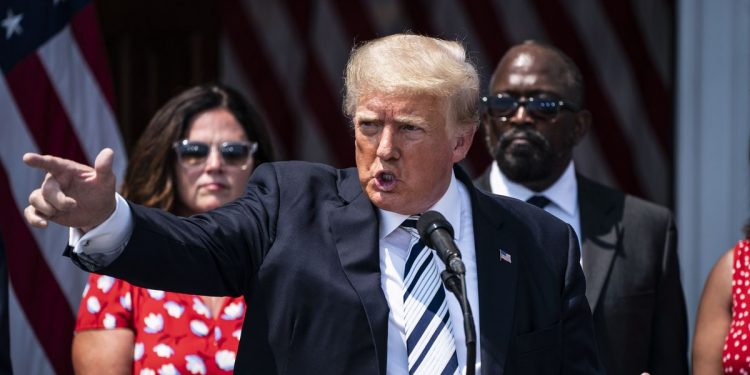At one point in history, the nature of Facebook’s interactions with political figures was not particularly problematic.
But following the elections in the United States in 2016, everything shifted.
During the early stages of the election, then-presidential candidate Donald Trump put Facebook’s policies against hate speech to the test. At the same time, the social media platform was simultaneously becoming a tool for the political exploitation of international actors.
The first challenge for Facebook was to respond to a post made by Donald Trump in 2015 in which he called for a “total and complete shutdown” of Muslim immigration to the United States. The business made the decision to leave the post live despite the fact that several employees believed there was a compelling case that Trump’s remarks violated Facebook’s policies regarding the prohibition of religiously motivated hate speech. The vast majority of Facebook employees, up until that point, had never previously been forced to confront the notion that their company’s platform could be utilized to foment such divisiveness by a political candidate seeking the highest position in the executive branch of the United States government.
“What do you do when the leading contender for president posts an attack… on [one of the] the greatest religion[s] in the world?” “What do you do when the leading candidate for president posts an attack… on [one of the] the biggest religion[s] in the Crystal Patterson, a lobbyist for the Democratic party and a former employee of Facebook, shared this information with us.
And it wasn’t only politicians on the national level that Facebook had to be concerned about; international rivals were also a factor. It soon became clear that propaganda from Russian Facebook accounts had reached millions of American voters, causing an unprecedented backlash and forcing the company to reckon with its culpability in influencing global politics. Despite the fact that Facebook CEO Mark Zuckerberg initially dismissed the possibility that fake news on the platform could have influenced the elections as a “pretty crazy idea,” it soon became clear that Russian Facebook accounts had reached millions of American voters.
Over the course of time, Zuckerberg would acknowledge Facebook’s role as what he called “the Fifth Estate,” an entity as powerful as the government and media in shaping the public agenda. At the same time, however, he would try to minimize the role that the company plays in dictating the acceptable terms of political speech.
In 2018, Facebook established the Oversight Board, a body that is analogous to the Supreme Court and was designed to provide input on content decisions that are politically charged, such as how to handle Donald Trump’s account. This was done to relieve the company of the burden of political responsibility going forward. However, because the board is so new, we do not yet know the extent of the influence it has over Facebook. To what extent does Facebook still have the duty to impose the conditions of its own platform? And will the board be able to make changes that are significant enough to affect the recommendation algorithms that power the social media platform?
In the fourth episode of Land of the Giants, the award-winning narrative audio series on Vox Media Podcast Network about the most prominent internet businesses of our day, we explore these questions concerning Facebook’s role in moderating political speech. This season, Recode and The Verge has collaborated to narrate the tale of Facebook’s journey to become Meta over the course of seven episodes. The episodes feature interviews with current and former executives of Facebook.
You may catch up on the first two episodes of Land of the Giants: The Facebook/Meta Disruption on Apple Podcasts, Google Podcasts, Spotify, or any other platform where you get your podcasts. The fourth episode of Land of the Giants is titled “The Facebook/Meta Disruption.”















































